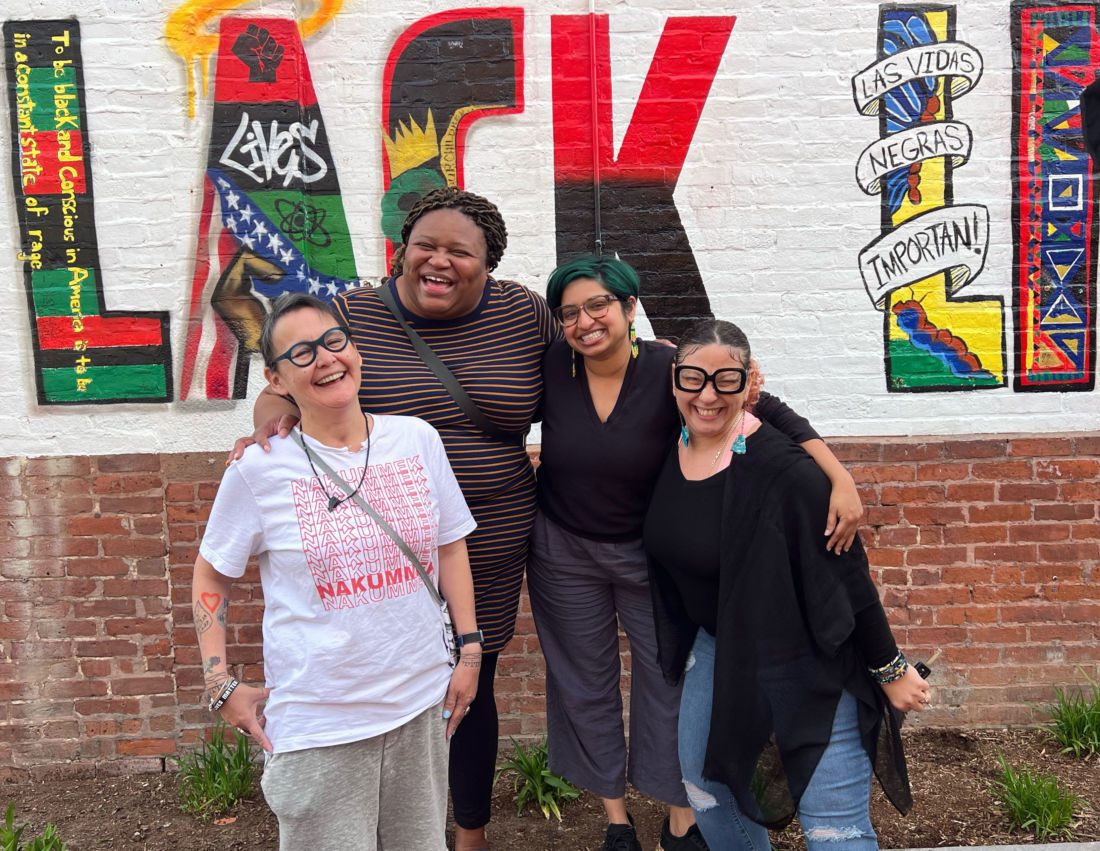May 3, 2022 Community Stories
Art Angels Turn to Artists of Color to Award Grants
When Jenny Ladd and Joan Hastings co-founded a giving circle in Western Massachusetts 24 years ago, camaraderie and connection fed the group as much as a heartfelt interest in supporting area artists with few resources.
While getting to know each other, circle members enthusiastically started providing small grants to artists through a donor-advised fund established at the Community Foundation. In 2008, the giving circle adopted the name, Art Angels. Most of the 20 people who contributed over the years gave anonymously.
During the COVID-19 pandemic, the group’s momentum ebbed. They couldn’t meet in person to socialize. And community conversations in the wake of George Floyd’s murder kindled an awakening that artists of color were often pushed to the margins.
So, giving circle members have now turned to a different method — participatory grantmaking — for selecting grant recipients. They’ve ceded decision-making to artists of color for awarding grants from the fund.
The new Art Angels grant committee will review applications and award grants (each typically $500 – $5,000) in May 2022. The committee members are:

- Leila Zainab, a queer Muslim, formerly undocumented immigrant, activist, artist, and social justice consultant
- Ella Alkiewicz, a Labrador Inuk artist, writer and poet who has lived in Western Mass for 16 years.
- Iréne “I-SHEA” Shaikly, an activist, artist, drummer and percussionist based in Holyoke
- Nicole Young-Martin, a Black poet, writer and spoken word artist whose professional skills include philanthropy
Zainab, Art Angels program coordinator and philanthropic advisor, said, “When we came together for the first time, it was sparks. We were so inspired and excited to think differently about the equity aspect of funding and the diverse voices in the arts world.”
“People with generational wealth feel comfortable in places where they hold power. And that comfort might be unintentionally exclusionary to those that don’t share the same class or race. We want to disrupt that,” Zainab added.
According to Zainab, the aim of Art Angels grantmaking has evolved to “support, uplift and celebrate the art of all people” while giving priority to Black, Indigenous, and people of color (BIPOC). It will fund art that “challenges, transforms and heals our world,” with grants to artists and nonprofit organizations serving Pocomtuc, Norwottuck and Nipmuc territories, also known as the Connecticut River Valley of Massachusetts.
Ladd welcomes the movement toward participatory grantmaking in the philanthropic sector. “We all gain,” she said, “when decision making is made by people other than those with wealth.”
Reflecting on the joy of supporting artists over the years, she added, “Humans are irrepressibly creative, and they want to make beautiful or powerful or artistic things — and its life giving. And for us to be able to blow some sparks on that creativity was always, always a great pleasure.”
